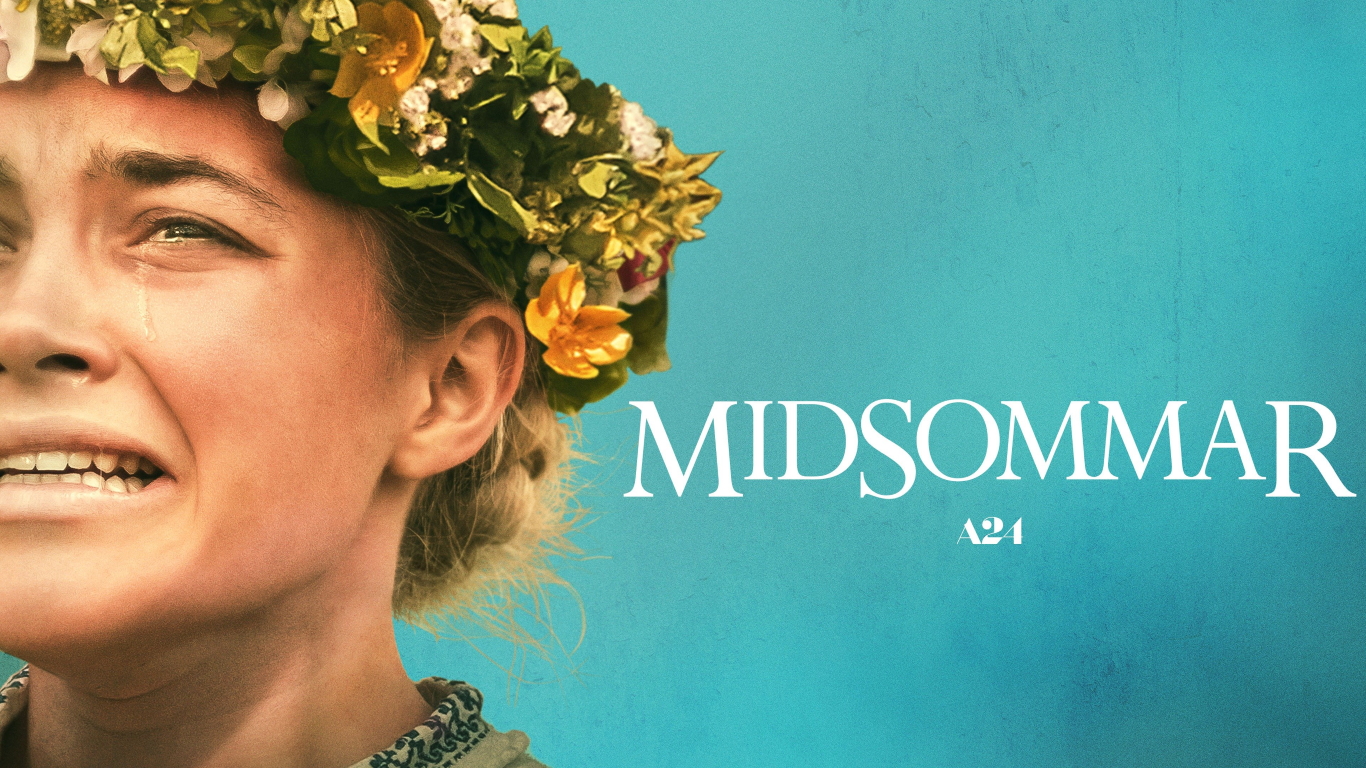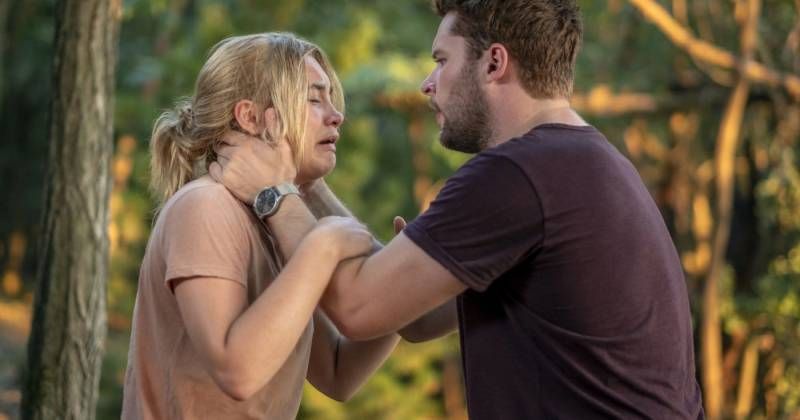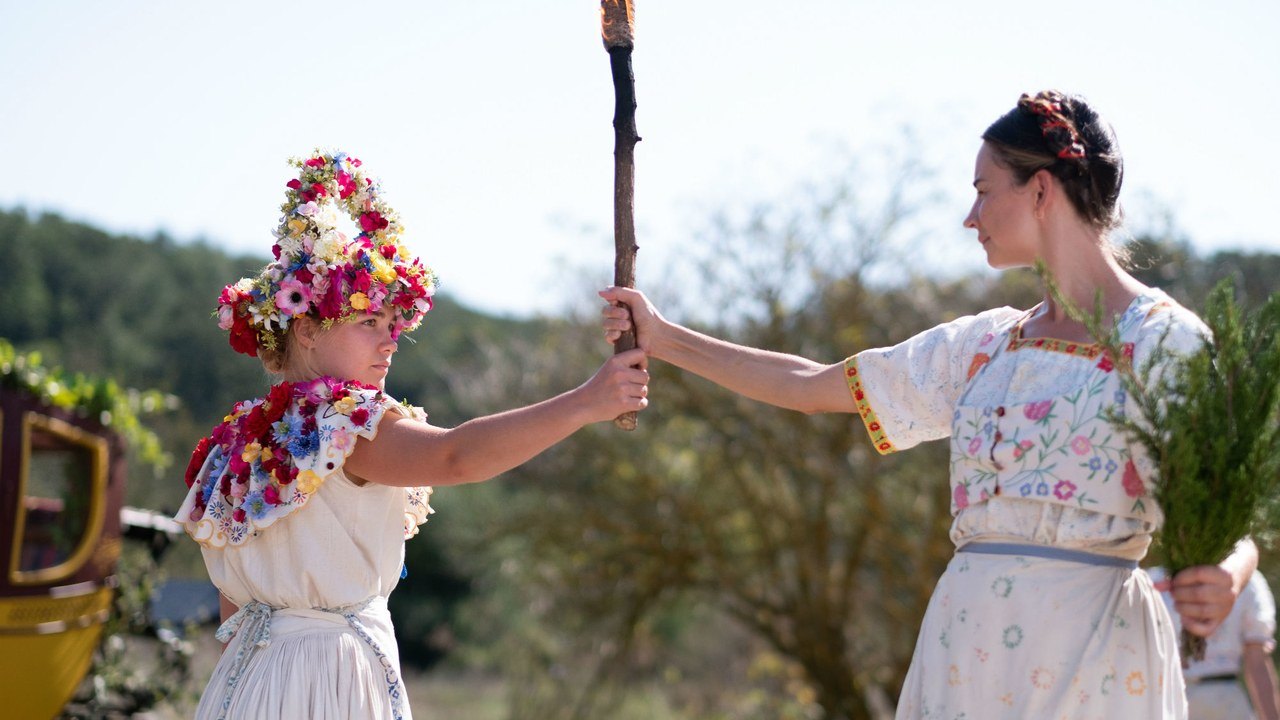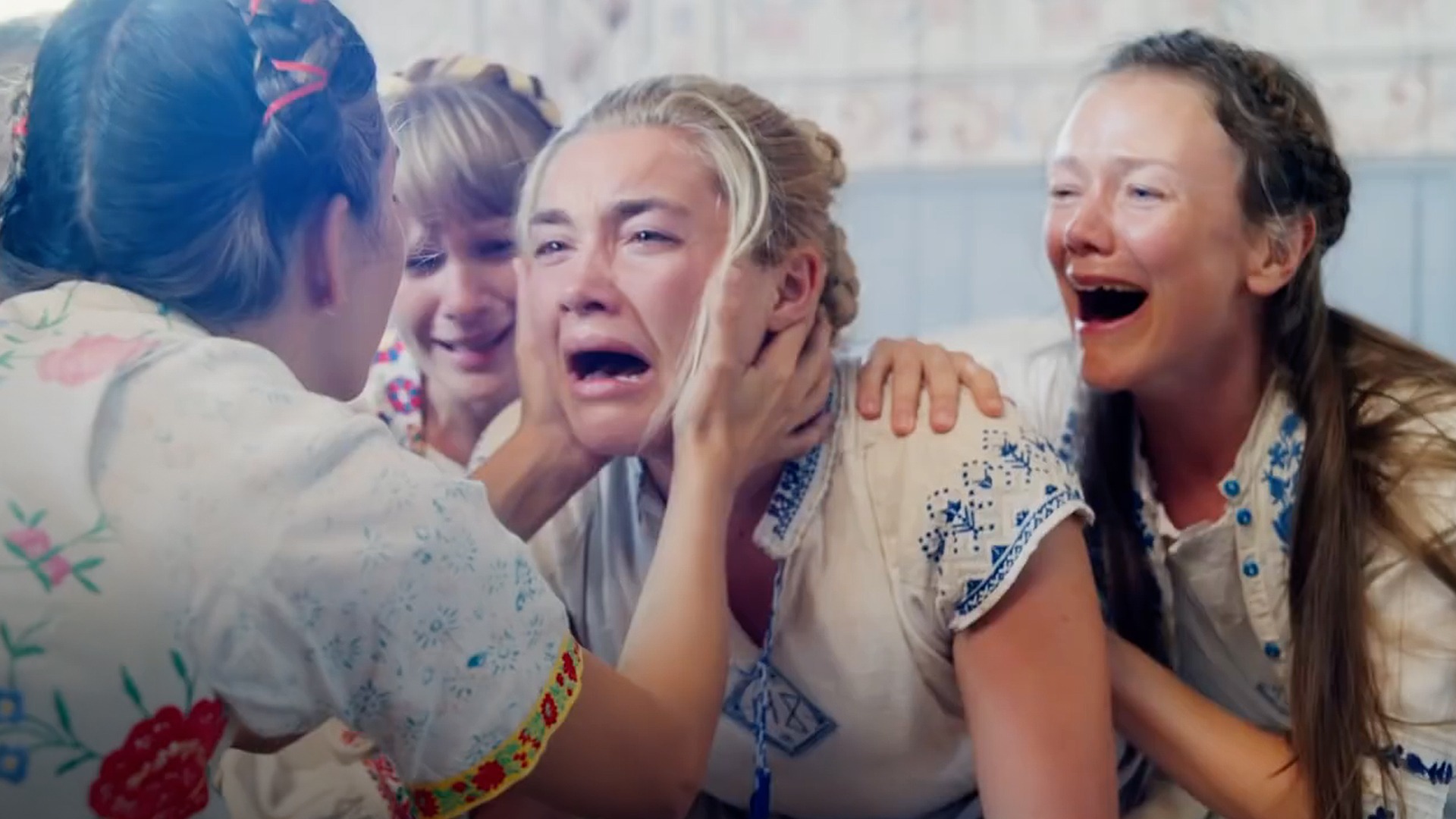Midsommar (2019)

Midsommar is a 2019 folk horror film written and directed by Ari Aster. Known for his unsettling style and disturbing visuals, Aster takes the audience on a psychological journey through grief, trauma, and cultural shock. Starring Florence Pugh, Jack Reynor, and a talented ensemble cast including William Jackson Harper, Will Poulter, and others, Midsommar presents a unique twist on the horror genre, exploring terror in broad daylight rather than the typical dark, shadowy settings.
The plot follows Dani (played by Florence Pugh), a grieving woman who accompanies her boyfriend Christian (Jack Reynor) and his friends on a trip to Sweden to attend a midsummer festival in a secluded rural village. What begins as an innocent cultural exploration soon takes a terrifying turn as Dani and her companions discover that the seemingly peaceful village is hiding dark and ancient rituals. As the film progresses, the group becomes increasingly entangled in the disturbing customs of the villagers, leading to moments of shocking violence and psychological terror.
Florence Pugh’s performance as Dani is the centerpiece of the film. As she navigates the loss of her family and the emotional distance in her relationship, her character’s journey from vulnerability to strength is both poignant and terrifying. Pugh’s ability to convey raw emotion adds depth to the film’s unsettling atmosphere, making the horror not just about what happens to the characters, but also about the emotional and psychological toll it takes on them.
Ari Aster’s direction in Midsommar is masterful in its ability to disturb and discomfort. One of the most unique aspects of the film is its setting, which takes place almost entirely in daylight. The bright, sunlit landscape of rural Sweden contrasts sharply with the horrific events unfolding within it. Aster uses this unsettling juxtaposition of beauty and horror to create a sense of dread, making the viewer question how evil can exist in plain sight, hidden in the most innocent of surroundings.

The film is also rich in symbolism and themes. It delves into the concept of grief and healing, with Dani’s emotional journey being central to the narrative. The village’s pagan rituals serve as a metaphor for the process of mourning and rebirth, though through a deeply unsettling lens. Midsommar explores the idea of belonging, as Dani is drawn to the village’s strange customs in a way that contrasts with her alienation from her own life back home, reflecting themes of personal transformation and cultural immersion.

While Midsommar is undeniably disturbing, it also presents a critique of relationships and personal boundaries. Dani’s relationship with Christian, which begins to fall apart throughout the film, is a key focal point. The disturbing rituals the group is subjected to act as a mirror to the toxic dynamics in Dani’s life, especially her emotional dependency and Christian’s neglect. This personal crisis becomes intertwined with the horrors of the village, creating an eerie commentary on how individuals can be consumed by both personal trauma and external forces.

In conclusion, Midsommar is a haunting exploration of grief, psychological trauma, and cultural clash wrapped in a folk horror narrative. With exceptional performances, particularly from Florence Pugh, and a chilling atmosphere created by Ari Aster’s direction, the film challenges traditional horror conventions. It’s a complex, unsettling experience that lingers long after the credits roll, making it one of the standout films in the horror genre of the 2010s.











